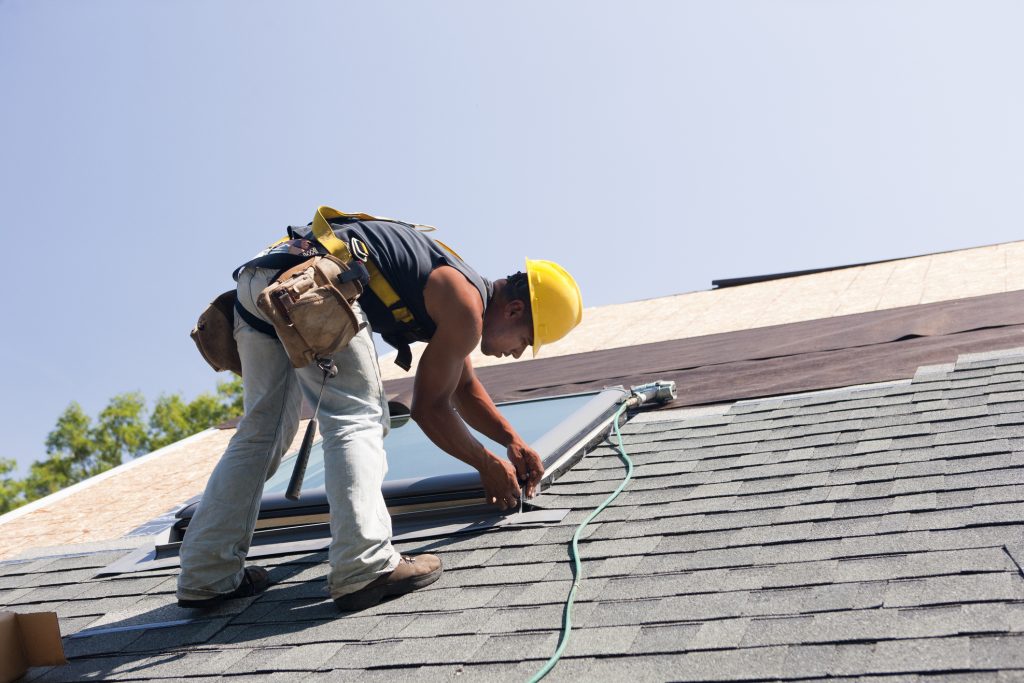
John Hult, South Dakota Searchlight
Tribal and rural areas in and around South Dakota are set to benefit from about $260 million in federal grants for solar energy projects.
A five-state, 14-tribe coalition was awarded $135.6 million for solar projects, the Environmental Protection Agency announced Monday. A Washington, D.C.-based “green bank,” meanwhile, pulled in another $125 million for tribal and rural projects across North and South Dakota.
The news about the EPA’s Solar for All program came on Earth Day.
The money comes from the $27 billion Greenhouse Gas Reduction Fund, created through the Biden administration’s Infrastructure Reinvestment and Jobs Act of 2021 and administered by EPA. The Solar for All program represents $7 billion of the $27 billion.
The state of South Dakota didn’t apply for any of the funding on the government level, making it one of six states to have skipped the opportunity.
A spokesperson for Gov. Kristi Noem told South Dakota Searchlight in December that most of the state’s energy – north of 80% – is already renewable. Noem called the program “wasteful spending” and said Biden-backed programs represent “the single largest cause of the inflation crisis.”
President Joe Biden appeared Monday in Vermont to herald his administration’s green investments and its creation of programs like the American Climate Corps, a workforce-training initiative focused on conservation.
Solar for All, Biden said, is “a big deal” that will put solar panels on the rooftops of people who’d otherwise be unable to afford them.
“This program means that 900,000 households – 900,000 – will have solar on their rooftops for the first time, and soon,” Biden said. “Millions of families will save over $400 a year on utility bills.”
Tribal coalition collects $135.6 million
The Northern Plains Tribal Coalition is led by the Mandan, Hidatsa and Arikara Nations in North Dakota and includes the South Dakota-based Sisseton-Wahpeton Oyate and the Flandreau Santee, Standing Rock, Oglala and Rosebud Sioux tribes.
That coalition’s grant funding will be managed by Indigenized Energy, a nonprofit firm founded by Standing Rock member Cody Two Bears in the wake of 2015-16’s Dakota Access Pipeline protests. Two Bears said Monday that the group will work with tribes to not only install solar energy, but to operate and maintain the systems when the grant money dries up.
The lack of interest and input from North and South Dakota on the Solar for All grants wasn’t surprising to Two Bulls, he said. The grant award for the tribal coalition signals that tribes have an opportunity to act as leaders in the climate sphere, regardless of what state governments do – or don’t – when grants for action are made available by the federal government.
Two Bears sees solar energy as a path to job creation and skills training, as well as an opportunity to bolster sovereignty and independence.
“It just gives us the opportunity in these tribal communities to lead the way in renewables, to show what is possible,” Two Bears said.
In the absence of state government leadership on climate in parts of the West and Midwest, Two Bears said, “we definitely need more examples of how renewable energy can be really impactful to our economies.”
Garret Renville, chair of the Sisseton-Wahpeton Oyate, said the coalition’s work shows how intergovernmental collaboration can serve a wider population.
Every tribal nation has different energy needs, geographies, landscapes and cultures, Renville said, but “through this collaboration, we will work side-by-side with tribes to develop solar projects that meet the distinct needs of each and every one.”
“As tribal leaders, it is our responsibility to prioritize the health and well being of our people and planet,” he said.
Fred Fox, representing the Mandan, Hidatsa and Arikara Nations, said the grants will allow for the installation of rooftop solar on 8,500 homes, with priorities for veterans, tribal elders and families with children.
“That works out to roughly 300 residents of each tribe,” Fox said.
More funding for the Dakotas
The other group awarded one of the 60 Solar for All grants is called the Coalition for Green Capital, a “green bank” nonprofit that uses public dollars to spur private investment in renewable energy through financing.
Green banks, according to the coalition’s website, “care about deploying clean energy rather than maximizing profit.”
That group was awarded $125 million to work on rooftop solar projects in the rural and tribal areas of both Dakotas.
The Washington, D.C.-based coalition will use the funds to “facilitate grant, tax, and low interest lending to develop solar units for multi-family dwellings,” according to the listing of Solar for All awardees, with priority given to low-income and disadvantaged communities.
It’s the second major federal award of 2024 for the coalition, which was founded in 2009 by Clinton-era Federal Communications Commission Chair Reed Hundt.
On April 4, the EPA announced a $5 billion award for the group, meant to help shepherd local and regional organizations that aim to start their own “green bank.” That award came from a different pot of federal climate money, the National Clean Investment Fund.
In its press release on the newly awarded grant, the coalition says it has more than $30 billion of demand for its award funds and believes that private-sector investors are prepared “to add more than twice that to the projects jump-started by public capital.”
